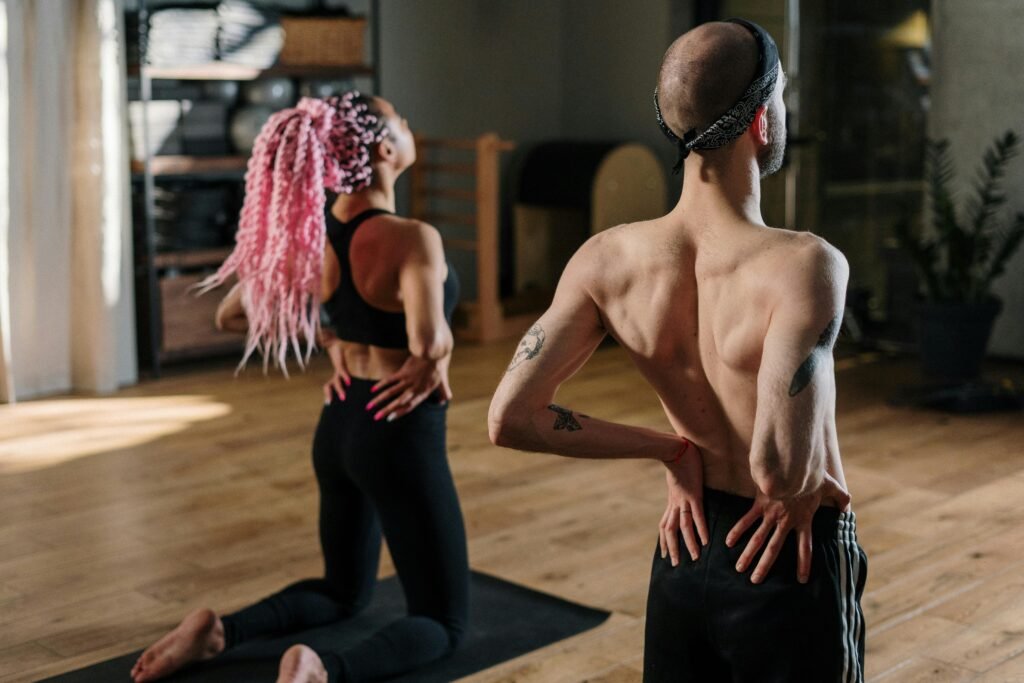Discover how mental health influences physical fitness. Learn strategies to create a balanced approach to health and achieve your fitness goals.
Introduction
In today’s fast-paced world, where physical fitness is often emphasized as a key component of a healthy lifestyle, the importance of mental health in this equation cannot be overstated. While many focus on achieving physical goals—like weight loss, muscle gain, or increased endurance—mental health plays an equally crucial role in overall well-being and fitness success. Understanding the connection between mental health and physical fitness can help individuals achieve better results and foster a healthier lifestyle.
The Connection Between Mental and Physical Health

Mental health refers to our emotional, psychological, and social well-being. Conversely, physical health is often characterized by how well our bodies function, including our strength, stamina, and overall fitness level.
For instance, individuals experiencing anxiety or depression often find it challenging to engage in regular exercise or maintain a balanced diet. On the other hand, those who prioritize their mental well-being—through practices like mindfulness, therapy, or simply taking time for self-care—are more likely to be motivated to engage in physical fitness.
You Can Also Try This Digital Product = The Anti-Anxiety Formula: A Proven Winner in Mental Health! | EBooks
1. Motivation and Mental Health

One of the most significant ways mental health impacts physical fitness is through motivation. A positive mental state enhances motivation, making it easier to establish and maintain an exercise routine. When individuals are mentally healthy, they tend to have higher energy levels, greater enthusiasm for workouts, and a more robust commitment to their fitness goals.
In contrast, when mental health is compromised—due to stress, anxiety, or depression—individuals may struggle to find the motivation to exercise. This can lead to a cycle of inactivity and declining physical health, further exacerbating mental health issues.
2. Stress Reduction through Exercise

Regular physical activity is a proven way to alleviate stress. Exercise stimulates the production of endorphins, often referred to as “feel-good” hormones, which can create a sense of euphoria and alleviate feelings of anxiety. Engaging in fitness routines can serve as a powerful outlet for managing stress, providing a break from daily pressures and worries.
Moreover, exercises like yoga and meditation specifically target mental wellness, promoting relaxation and mindfulness. Incorporating these practices into a fitness routine can help individuals build resilience against stress, improving their overall mental health and, in turn, their physical performance.
You Can Also Try This Digital Product = The Anti-Anxiety Formula: A Proven Winner in Mental Health! | EBooks
3. Building Confidence and Self-Esteem

Mental health significantly influences self-esteem and body image, which are crucial factors in physical fitness. When individuals feel good about themselves, they are more likely to engage in physical activities and push their limits. On the other hand, negative self-talk and poor body image can lead to avoidance of exercise or unhealthy behaviors.
Regular physical activity can boost self-esteem, creating a positive feedback loop. As individuals see improvements in their strength, endurance, or appearance, their confidence grows, reinforcing their commitment to fitness. This cycle of empowerment is vital for long-term success in achieving fitness goals.
4. Social Connections and Support

Engaging in physical fitness often involves social interactions, whether in group classes, team sports, or simply exercising with friends. These social connections are essential for mental health, providing a sense of belonging and support. Building relationships with others who share similar fitness goals can motivate individuals to stay committed to their routines and improve their mental well-being.
Conversely, those struggling with mental health issues may find it challenging to participate in social activities, leading to isolation. Maintaining a strong social network can be crucial for overcoming mental health challenges and enhancing the overall fitness experience.
5. Creating a Balanced Approach

To achieve optimal results in physical fitness, it is essential to adopt a holistic approach that prioritizes both mental and physical health. Here are some strategies to consider:
- Set Realistic Goals: Establish achievable fitness goals that take into account your mental health. Avoid overloading yourself with expectations, as this can lead to frustration and disappointment.
- Seek Support: If you struggle with mental health issues, consider seeking professional help. Therapy or counseling can provide valuable tools for managing anxiety or depression, enhancing your motivation to exercise.
- Engage in Activities You Enjoy: Choose physical activities that you genuinely enjoy, whether it’s dancing, hiking, or playing a sport. Enjoyment increases the likelihood of consistency in your fitness routine.
- Prioritize Rest and Recovery: Listen to your body and allow for adequate rest and recovery. Pushing yourself too hard can lead to burnout and negatively impact both mental and physical health.
Conclusion
Understanding the importance of mental health in physical fitness is crucial for achieving long-term health and wellness. By recognizing the interplay between these two aspects of well-being, individuals can develop a more balanced approach to fitness. Prioritizing mental health not only enhances motivation and performance but also fosters a healthier, more fulfilling lifestyle. Remember, taking care of your mind is just as important as taking care of your body—both are essential components of a holistic approach to fitness. Embrace the journey towards better mental health and physical fitness, and enjoy the profound benefits that come from nurturing both.
You Can Also Try This Digital Product = The Anti-Anxiety Formula: A Proven Winner in Mental Health! | EBooks